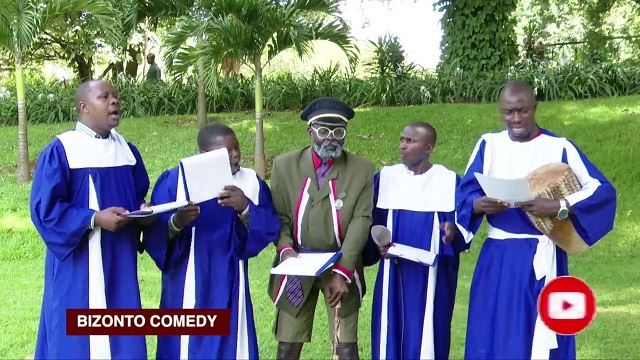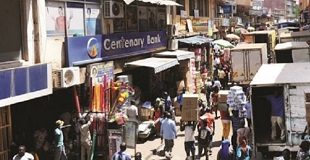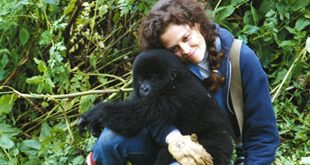
COMMENT | PAUL KALUNGI | “If you ever wish to understand anything, study its birth and its development”. So if you want to understand Bizonto’s drama on the current government in power, rather than reading the day’s headlines, study its development and evolution from FRONASA to PRA to NRA to NRM political party all of which have been under the leadership of one man.
In 1981, several young men many in their 20’s and 30’s set off to attack Kabamba barracks with, as we are told, 27 guns. The names of those original fighters who set off in a Mercedes Benz track read like a Ntare school roll call:
Paul Kagame, Fred Rwigyema, Elly Tumwine, Julius Chihandae, Fred Mwesigye, Jack Mucunguzi, George Mwesigwa, Charles Tusiime Rutarago, Akanga Byaruhanga, Arthur Kasasira, Nathan Mweinemuzei, David Ndyayondi, Robert Kabura, Lauben Ikondere, Paul Kagina, Shaban Kashanku, Enock Mondo, Frank Kifuba, Maurice Katungi, Hannington Mugabi and a hyper active kid called Andrew Kangaho.
They would later be joined by Kaguta Museveni and Sam Magara. Meanwhile the plans were hatched from Mathew Rukikaire’s Makindye home. Andrew Lutaaya, the track driver is one of the few (if not the only one) on this list that hails from ‘outside of that region’.
And yet this is not an effort at fanning nepotism or hatred by a certain tribe or certain tribes against others. Rather, it is to point out similar patterns in our country’s post-independence history that are not so different from what we have seen with the NRM government. Perhaps the only difference is that NRM has stayed in power longer than all previous regimes making some of those patterns easier to notice over time.
For a country that has not seen a peaceful transition, one would be right to argue that much if not all real state power lies not in parliament but in the security and intelligence organisations. Therefore;
For Idi Amin, the same practice we see today was well shown in having West Nilers, mostly Kakwas and Nubians, as his closest aides and confidants, entrusting them with highly classified operations and key military installations. Most notable were the likes of Isaac Maliyamungu, Mustafa Adrisi, Brigadier Taban, Colonel Gole, Ali Toweli, and current first deputy prime minister Moses Ali.
Nothing is clearer in history than the adoption by successful rebels of the methods they were accustomed to condemn in the forces they deposed
When the 1972 expulsion of Asians happened, the key beneficiaries of the property redistribution were still Amin’s fellow tribesmen. In the early 80’s, it was Moses Ali along with Adrisi Mustafa formed a rebel group in, you guessed right, West Nile (the UNRF), to fight for the return of their former leader.
Some have attributed Amin’s nepotism to his lack of education, but when Prof. Yusuf Lule stepped on the podium to speak for the first time as leader of post-Amin government, he famously/infamously remarked: “abaganda kyemwayagaliza embazi, kibuyaga asude.” (the baganda have got what they have always wished for)…it is our (Baganda) turn now.
He went ahead to appoint the likes of Robert Ssebunya, Sserumaga, Andrew Kayira to cabinet positions, to the great disappointment of the NCC. He further contacted Mr. David Nsubuga, a former Special Branch officer, who was in exile at the time, to become new Inspector General of Police.
An old man who frequented statehouse during Yusuf Lule’s 68 day rule told me the language of communication had changed entirely, to…….yah that one. And just like Amin before him, the demonstrations against his overthrow that chanted “ffe twagale Lule, oba tufa tufe” were fuelled by Ssenteza Kajubi, Paul Kavuma, his former appointees to cabinet, Not Natukunda or Opio.
Then came Obote who kept the Acholi close and his fellow Langis even much closer. With the Langi Oyite Ojok as the Chief of Staff of the armed forces, he was often looked at as the de facto second-in-command during Obote 2 regime. Several accounts indicate that Obote’s security detail was principally made of Langis (much like the Special Forces command that has been commanded by people of the same tribe: from Muhoozi Kainerugaba to Sabiti Muzeyi to Don Nabaasa and now James Birungi).
In 1983 when Oyite Ojok died in a plane crash, Obote eventually found a perfect replacement in a relatively less experienced Langi army officer, Smith Opon Acak, a move that would later lead to the 1985 coup.
When Museveni launched the bush war, he pointed to nepotism and sectarianism in the past regimes as one of the reasons that prompted him to wage war against them. If Obote and Amin were alive today, they’d laugh at Museveni.
Will Durant once profoundly remarked: ‘nothing is clearer in history than the adoption by successful rebels of the methods they were accustomed to condemn in the forces they deposed’.
History teaches us that we are not that much better off compared to those that came before us, so may be its time we reflected on the dynamics of power that create this stack contrast between our most cherished principles and what we actually practice!
 The Independent Uganda: You get the Truth we Pay the Price
The Independent Uganda: You get the Truth we Pay the Price



Museveni/NRM abusing power( grand & petty corruption, nepotism,tribalism, human rights abuses etc) in a very similar fashion as the much crticised/insulted Obote/ Amin governments reminds one of George Orwell’s classic The Animal Farm.
In the book the animal farm , the mistreated animals led by a group of pigs(NRM/ museveni) revolt against the farm owner Mr Jones (Obote/Amin government), accusing the owner of all sorts of abuses/ mismanagement. The pig-led revolution is successful & Mr Jones is banished from the farm with the pigs forming new mgt of the farm.
In the Immediacy of the successful revolution, there is a semblance of the promised benefits of the revolution. But then the pigs gradually secure their leadership of the farm & they gradually restart the abuses/ mismanagement of the expelled Mr Jones. This is accompanied with gradually rising dissent of the led & intolerance of the rulers(pigs),this culminates in the expulsion of the dissenting (one of the revolutionary pigs) from the farmb& also stepping up of the abuses of the other animals & the double-speak of the pig rulers trying to justify their misrule as something good for the animals and also different from Mr Jones rule.
At the end of the book, the pigs physically & fully transform into human beings much like the Mr Jones & with his drunkeness and abuse of the animals.